
Food Grain Inspection In Delhi
25,000 - 35,000 Per piece
CIL Provides Accredited Food Grain Inspection Services in Delhi. CIL is an ISO 17020 accredited body for food grain inspection. How Should You Inspect Grain for Quality Analysis? There are various inspection methods and tools for monitoring grain quality. Modern grain inspection systems use innovative magnification technology. CIL inspection systems provide magnification up to 320 times, with multi-viewer options and high-definition live imaging. This enables close-up viewing and assessment of crops for seed or grain quality. Inspection systems can help detect contaminants and identify sprouted or damaged grains. Grain quality testing and analysis come in various forms, using different methods and technologies. These methods are ideal for testing at different parts of the production process: Growing, Harvesting, Storage, Distribution, Food production. Grain Inspections, testing and Audits, CIL is a world-leading third-party inspection company. With a wealth of experience, we ensure fast, quality and reliable testing of grain, wheat, soybean, corn and rice and much more. We use state of the art testing methods and in-house industry experts to provide an extensive range of premium services. Grain Inspection Services, our grain inspections are bespoke based on the different production status of the goods, preventing any risks and delays. This gives ample time for results of quality testing so that your goods can meet with purchase orders. Grain Supplier Audits, our onsite factory audits will assist in developing a deeper understanding of your needs. Giving valuable insight to which suppliers fit best to achieve your business objectives. We also evaluate suppliers based on the criteria which are required. Grain Testing, we provide several forms of grain analysis, which aligns with international and national standards, confirming if these products are following contracts and regulations. To do this, we provide in-depth testing of products to detect contaminations. CIL is an ISO 17020 accredited body for food grain inspection. Testing grain for quality is central to commercial grain production and there are opportunities to analyze and measure grain against various parameters at different stages of the production process. Grain quality is important for farmers, food producers and, ultimately, consumers. What Should You Test in Grain? Key things to test for in grain include: Moisture, Protein, Specific weight, Mycotoxins, Oil content, Falling number. These various elements in grain will have an impact on its quality, its marketability and its overall value as a product. Moisture content is a major concern. It affects the sale weight of grain and determines whether it can be stored in the long term. The specific weight is a standard, widely understood and accepted measure of grain quality. It is an indicator of the density of grain, and as with protein, producers and millers will have specific weight requirements for the grains they buy. Testing for nitrogen in some grains may be necessary as levels that are too high can lead to a lower specific weight. Testing for mycotoxins is vital, as these naturally occurring toxins can impact crop production, contaminating crops during harvesting, drying and storage. Plus, they pose a risk further up the food chain, if animals eat contaminated feed. Oil content is an essential parameter for various seed crops, including oilseed, including testing the purity of oil. The falling number (FN) test measures alpha-amylase (AA) enzyme activity and levels. Levels of AA activity can determine whether specific grains are suitable for different baked products. This is the original method for testing the suitability of wheat for bread-making.

Halal Certification Services
Get Price Quote
The Halal certificate is a document that guarantees that products and services aimed at the Muslim population meet the requirements of Islamic law and therefore are suitable for consumption in both Muslim-majority countries and in Western countries where there are significant population group who practice Islam We specialize in offering HALAL Certification services. Halal certification we provide is recognition that the products are permissible under Islamic law. These products are thus edible, drinkable or usable by Muslims. Our services are supplying the consumer and our customers with the finest, high-quality products and to leading the industry in nutrition research and education.
Looking for Food Certification Services Providers

Haccp Certification Services
Get Price Quote
HACCP certification shows your consumers instantly that you are committed to produce and trade only safe food. This is the best evidence especially when you are subject to inspection by the stakeholders or regulatory authorities. Showing that you are truly committed to food safety through the HACCP certificate you can transform your company into a brand and can enter the market with new business opportunities. Mark Certification services provide you with the best HACCP certification services and a global network of food experts who will help you to focus on the risks or hazards that can affect the quality, hygiene, and safety of food. Thus, contact us and get our services.

Haccp Certificate Provider in Delhi Mumbai Kolkata India
25,000 - 30,000 Per piece
We provide haccp certification services. The food supply chain for food and beverages is vital for the health of the nation, particularly in india. A haccp system is a preventative approach to controlling food safety. Haccp moves away from reliance on end product testing to a more proactive, preventative approach of controlling potential hazards. haccp involves a system approach to identification of hazard, assessment of chances of occurrence of hazards during each phase, raw material procurement, manufacturing, distribution, usage of food products, and in defining the measures for hazard control. In doing so, the many drawbacks prevalent in the inspection approach are provided and haccp overcomes shortcomings of reliance only on microbial testing. the modern haccp system and guidelines for its application were defined by the codex alimentarius commission in the codex alimentarius code of practice. haccp enables the producers, processors, distributors, exporters, etc, of food products to utilize technical resources efficiently and in a cost effective manner in assuring food safety. Food inspection too would be more systematic and therefore hassle-free. It would no doubt involve deployment of some additional finances initially but this would be more than compensated in the long run through consistently better quality and hence better prices and returns. the ascent of haccp has been rapid (in india too), mainly because of the increase in the reported cases of serious food poisoning. The introduction of the food safety act 1990 and the food safety (general food hygiene) regulations 1995 (eu food safety directive 93/43/eec), which requires a food business to carry out a hazard analysis. Haccp stands for 'hazard analysis critical control point'. It is an internationally recognised and recommended system of food safety management. It focuses on identifying the 'critical points' in a process where food safety problems (or 'hazards') could arise and putting steps in place to prevent things going wrong. This is sometimes referred to as 'controlling hazards'. Keeping records is also an important part of haccp systems. benefits of haccp preventative approach to food safety can help identify process improvements reduces the need for, and the cost of end product testing. In most cases end product testing is not feasible anyway is complementary to quality management systems such as iso 9000 provides evidence of due diligence and hence mitigates the prospect of being sued in a court of law reduces the likelihood of product recall & adverse publicity enhances customer satisfaction and faith in the continuing suitability of the product for human consumption/ reduces dissatisfaction facilitates better understanding of food packaging safety concerns throughout the organisation improves staff performance through the promotion of team spirit and joint responsibility improves staff morale and motivation through a cleaner working environment.

HACCP Certification
Get Price Quote
Food safety is related to the presence of food-borne hazards in food at the point of consumption (intake by the consumer). As the introduction of food safety hazards can occur at any stage of the food chain, adequate control throughout the food chain is essential. Food safety is ensured through combined efforts of all parties participating in the food chain. HACCP CAC RCP 1-1969 specifies general principles for food hygiene that, when taken as part of an overall management system, can provide confidence in the achievement of positive food safety outcomes. The process As an organisation, the steps involved for you are: Applying for certification: Review and accept our customised Proposal, and you’re underway! Achieving certification: Firstly, a pre-certification audit or “test run” will be conducted either on-site (at your premises) or off-site (at our premises) or both, to see whether your management systems are suitable. Areas of concern will be reported. Once concerns have been actioned, an on-site certification audit will be conducted, where we will examine the extent to which you address the program criteria. Areas of concern will be reported. Once we are satisfied there are no outstanding issues that present an unacceptable risk to you, your employees, customers, regulators, Equal Assurance or others, we can proceed to issue a Certificate of Confidence. Well done! Maintaining certification: Depending on the level of risk, we will conduct a series of surveillance audits (and in some cases special and follow-up audits) and tri-ennial re-certification audits, to examine the extent to which you continue to address the program criteria. Areas of concern will be reported. So long as we continue to be satisfied there are no outstanding issues that present an unacceptable risk to you, your employees, customers, regulators, Equal Assurance or others, your certification remains valid.

Halal Certification Services
Get Price Quote
An assurance that the food is pure and prepared in line with the Islamic law is the halal certification. A product cannot be certified as halal if it contains haram ingredients, such as animals or animal by products. In India, a third-party body often this accreditation. The Jamiat-Ulama-E-Maharashtra and the Jamiat-Ulama-i-Hind Halal Trust were two such significant organizations operating in India, according to the appeal before the Supreme Court. Unlike to Arab nations where a magistrate grants the halal certification, there is no legal authority in the United States that issues the document. Why is Halal Certification Needed? Consumers can easily find products that correspond to halal dietary requirements thanks to the halal certification. According to Research and Markets, the market for halal food is expanding rapidly and is projected to increase at a compound annual growth rate of 11.24 percent between 2022 and 2027. As a result, many businesses choose to obtain the halal certification in order to export their goods to a bigger market base.

FSSC 22000, ISO 22000, BRC certification for Food & packaging company in Delhi, Baddi, Kundli, India
200,000 - 2,500,000 Per unit
1 unit (MOQ)
We provide a framework for the systematic identification, assessment and management of risks which are related to food safety, in order to comply with legal requirements, to prevent the occurrence of risks and to continuously improve. FSSC 22000 was created by the non-profit organization FSSC (Food Safety System Certification), a combination of the requirements of ISO 22000 and ISO / TS22002-1 (= Prerequisite Programs on Food Safety for Food Manufacturers), which replaced the PAS 220 and is recognized by the largest food retail chains worldwide. BRC Food Safety Standard was developed by the British Retail Consortium (BRC) and is addressed in many food companies wishing to export to supermarket chains in Great Britain. ISO 22000 is an internationally applicable standard, which specifies the requirements for developing and implementing an effective Food Safety Management System..

BRC Registration Service
Get Price Quote
Our BRC (Bank Realization Certificate) Registration Service ensures seamless documentation of export transactions for businesses. A BRC is issued by banks as proof of export proceeds received from international trade. This certificate is essential for claiming export incentives and for compliance with regulatory requirements. We manage the entire registration process, from coordinating with your bank to submitting the necessary documents to the Directorate General of Foreign Trade (DGFT). With our expert assistance, businesses can focus on their growth while we handle the complexities, ensuring a smooth, hassle-free process and timely issuance of the BRC.

Haccp Certification Services
Get Price Quote
Benefits of Implementing HACCP HACCP can be applied throughout the food chain from the primary producer to final consumer : HACCP reduces the need for finished product testing by identifying the hazards associated with the inputs into the process and the product and devising control measures which can be monitored in order to minimize or eliminate the hazards. HACCP will significantly reduce the chance of microbiological, chemical, and physical contaminants from reaching the customer. HACCP can reduce regulatory involvement (and hence costs) by replacing on-line inspection with regular auditing. HACCP principles can be applied to other aspects of food quality and regulatory requirements. HACCP improves communications between supplier and customer. It encourages businesses to work together more closely. HACCP is capable of accommodating changes such as advances in raw materials, equipment and premise design, procedures, and technological developments. It improves customer confidence leads to increased market share.
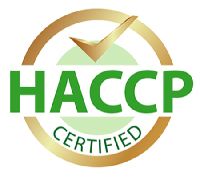
HACCP Food Safety Certification Services
Get Price Quote
HACCP stands for Hazard Analysis and Critical Control Point and it is mainly designed to identify and minimize hazards in food production. In other words, HACCP is a process in which food safety is addressed by the analysis and control of biological and physical hazards. It is a global recognized standard for food safety and provides high credibility to the potential clients. HACCP define for the prevention of hazards not for the finished product inspection it helps to provide guideline to the organization on how to analysis the hazards and how to reduce or control them for human consumption. The main objective of HACCP is process and makes the product safe. The Preventive approach of HACCP is helps to improve the food management system as well as improve the quality management system. HACCP Principle HACCP approaches 7 principles Conduct a hazard analysis. Determine the critical control points. Establish critical limits. Establish a system to monitor control of the CCP. Establish the corrective action to be taken when monitoring indicates that a particular CCP is not under control Establish procedures for verification to confirm that the HACCP system is under control. Establish documentation concerning all procedures and records appropriate to these principles and their application. Benefits of HACCP Consistent Improve food quality and food safety management system. Improve the market value of the organization. Reduce risk in food production system. Develop team work among the employees. Time saving and cost saving process. It helps to ensure that you are compliant with the law. Commitment to produce safe and quality food for human consumption.

HACCP Registartion Certification in Jaipur.
Get Price Quote
Benefits of Implementing HACCP HACCP can be applied throughout the food chain from the primary producer to final consumer : HACCP reduces the need for finished product testing by identifying the hazards associated with the inputs into the process and the product and devising control measures which can be monitored in order to minimize or eliminate the hazards. HACCP will significantly reduce the chance of microbiological, chemical, and physical contaminants from reaching the customer. HACCP can reduce regulatory involvement (and hence costs) by replacing on-line inspection with regular auditing. HACCP principles can be applied to other aspects of food quality and regulatory requirements. HACCP improves communications between supplier and customer. It encourages businesses to work together more closely. HACCP is capable of accommodating changes such as advances in raw materials, equipment and premise design, procedures, and technological developments. It improves customer confidence leads to increased market share.

BRC Food Certification Services
Get Price Quote
Elevate your food safety standards with our BRC Food Certification Services. We guide your business through the British Retail Consortium (BRC) certification process, ensuring compliance with global food safety regulations. Our expert services cover documentation, audits, and assessments, demonstrating your commitment to producing safe and quality food products. Achieve BRC Food Certification seamlessly with our assistance, enhancing consumer confidence and opening doors to global markets. Trust us to navigate the complex certification journey, allowing your brand to stand out for its commitment to food safety and quality. Partner with us for a recognized mark of excellence in the food industry.

Kosher Food Approval Certification
105,000 - 110,000 Per Certificate
Type of Certification Renewal Type Of Industry Manufacturing Type Of Service Provider Consulting Firm 1. Introduction As it says in the German, Man ist was man isst! Man is what man eats. The word kosher is familiar and, at the same time, foreign. One may think of strict rules and religious regulations.In Hebrew, “Kashrus,” from the root kosher (or “kasher”), means suitable and/or “pure”, thus ensuring fitness for consumption.The laws of “Kashrus” include a comprehensive legislation concerning permitted and forbidden foods. There are several aspects to these dietary rules. We will consider each aspect in turn. 2.1 Meat and its derivatives Kosher meat must comply with certain rules.Kosher Species of Animals:According to the laws of the Torah, the only types of meat that may be eaten are cattle and game that have “cloven hooves” and “chew the cud.” If an animal species fulfills only one of these conditions (for example the pig, which has split hooves but does not chew the cud, or the camel, which chews the cud, but does not have split hooves), then its meat may not be eaten. Examples of kosher animals in this category are bulls, cows, sheep, lambs, goats, veal, and springbok.According to the laws of the Torah, to be eaten, a kosher species must be slaughtered by a "Schochet," a ritual slaughterer. Since Jewish Law prohibits causing any pain to animals, the slaughtering has to be effected in such a way that unconsciousness is instantaneous and death occurs almost instantaneously. Kashering (Removing the blood) & removing the veins and skin (‘Porschen’ or ‘Nikkur’):After the animal is slaughtered, the Kosher Supervisor and his team treiber the carcass by removing certain forbidden fats and veins. After the meat has been treibered, it is soaked in a bath in room temperature water for a half hour. To draw out the blood, the soaked meat is then placed on special salting tables where it is salted with coarse salt on both sides for one hour
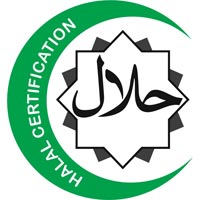
Halal Certification
Get Price Quote
Living up to the stellar reputation of ours, we offer our esteemed clients a varied range of Halal Certification services. As a Service Provider, we are dedicated to meet our clients’ exact needs. Thanks to our specialized ISO implementation methodology, the whole process becomes less time consuming, easy to understand and implement, result oriented, time bound and cost effective. The services on offer are available for a reasonable fee. Other than that, our service is highly appreciated among our clients for promptness.What is HALAL Certification? Halal simply means permitted or lawful. So when we are talking about halal foods it means any foods that are allowed to be eaten according to Islamic Sharia law. This means that for any food to be considered halal it must comply with the religious ritual and observance of Sharia law. Halal Certification is a recognition that the products are permissible under Islamic law. These products are thus edible, drinkable or usable by Muslims. Halal Certification helps to build Halal consumer's confidence without suspicion or doubt over the consumption of the food products in restaurants, Hotels or in the form of medicines and vitamins. It is an authoritative and reliable testimony to support food manufacturers' claim that their products have met strict Halal requirement by the Shariah Law. The Benefits of HALAL Certification :It is estimated that 70% of 1.6 billion Muslims worldwide follow Halal food standards, and that the global Halal market is currently estimated USD $600 billion. Today, Halal trademark is an important marketing tool in the international arena particularly if the product is aimed at penetrating Muslim countries. Muslim consumers will have greater confidence in purchasing such products without questioning its authenticity. Producers who do not have the Halal Certification would lose a large segment of potential customers from around the world. In addition, the Halal Certification is also required by an importer to the country.The Halal certificate by a competent authority assures the consumer that the certified product : Neither is nor consist of or contains any part or matter of an animal that a Muslim is prohibited by Shariah to consume or that has not been slaughtered in accordance with shariah. Does not contain anything which is considered to be impure according to shariah. Has not been prepared, processed or manufactured using instrument that was not free from anything impure according to shariah; and Has not in the course of preparation, processing or storage been in contact with or close proximity to any food that fails to satisfy paragraph (a) (b) or (c) or anything that is considered to be impure according to Hukumshariah. Contact us now, to get Halal Certificate for your product in the most effective and efficient manner while realizing the true benefits of the certification using our specialized implementation methodology that is less time consuming, fast, easy to understand and implement, result oriented, time bound and cost effective.
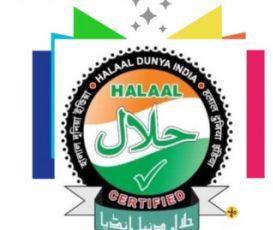
Halal Certification Services
Get Price Quote
Halaal Certification Services.
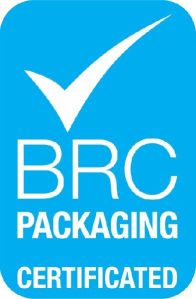
BRC Global Standard Food Packaging Materials Certification Service
Get Price Quote
Brc global standard for packaging and packaging materials certification from sgs – demonstrate compliance in hazard and risk management, hygiene, product safety and quality systems. Every organization involved in the manufacture of all types of packaging and packaging materials can show their commitment to producing a safe, functional and legal product by obtaining certification to this standard. Certification is regularly required by customers as part of their supplier approval procedures. We are approved by the brcgs to offer certification against the brcgs for packaging and packaging materials and our global network allows us to offer this service wherever you (or your suppliers) are and at whatever stage of the international supply chain. Importantly, we use auditors who speak the local language and understand the local culture, helping you ensure that good safety management practices are followed. The benefits of certification obtaining certification will help satisfy your customers’ expectations by demonstrating the plans, programs and systems that the standard demands: • a hazard and risk management system to manage risks by following a step-by-step approach • a series of pre-requisite programs dealing with the basic environmental and operational conditions needed for the production of safe and hygienic packaging and controlling the generic hazards covered by good manufacturing and good hygiene practices why choose brc global standard for packaging and packaging materials certification? the brcgs is recognized by the global food safety initiative (gfsi), a program that aims to harmonize international food safety related standards with the support of the world’s top retailers, food and packaging manufacturers. Gfsi recognition means you can use the brcgs global standard for food packaging materials to meet the requirements of these major players under a single, internationally recognized food safety management system.

Halal Kosher Tank Certification
Get Price Quote
We provide Halal and Kosher Tank Certification for Exporters
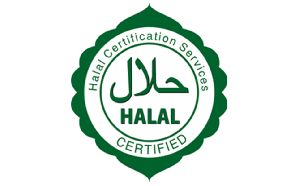
Halal Certification Services
Get Price Quote
Contact us now if you are looking for Halal Certification Services. Halal certification is generally required for meat products along with other food items like milk, canned food, etc. It ensures that the quality and features of the food are in accordance with the rules established by the Islamic council. Only after this certification you are eligible to use the mark ‘Halal’. Contact us to get this certification as we take care of all the paperwork required.

ISO 22000:2005 Food Safety Certification Services
Get Price Quote
Every food product manufacturer/supplier in the country requires ISO 22000:2005 Food Safety Certification. Obtaining the certification declares that a specific manufacturer/supplier follows the international standards for demonstrating the ability to display that the food item proffered is entirely safe for human/animal consumption. It can be used in any industry regardless of its size. Since it is accepted internationally, it benefits and impacts the food safety management system that goes beyond regulatory compliances. Contact us anytime for utilizing this service.

Halal Certification Services
Get Price Quote
Halal certificate issued by the Board is an assurance that a particular product has been thoroughly investigated and found to conform to the Islamic Shariah Laws and therefore is suitable for use by Halalconsumers. all is any object or an action which is permissible to use or engage in, according to Islamic law.The term covers and designates not only food and drink but also all matters of daily life Halal is an Arabic word meaning lawful. It refers to things or actions permitted by Shariah law without punishment imposed on the doer. As a concept, halal does not only pertain to food. Halal means permissible and can refer to any aspect of life covered by the teachings of Islam. Halal is a part of sharia as a system of morals to guide Muslims' actions and behaviour, but this should not be confused with halal as part of a codified system of sharia law. Classification of food products as Halal is a very serious and can only be carried out by a Muslim who is an expert in the Islamic dietary laws. The Islamic dietary laws define what food and drinks are Halaal. These Islamic dietary laws are defined in the Holy Quran (the revealed book), the Hadith (sayings of the last Prophet, Muhammad, Peace and blessing of Allah be upon him) and in the fiqh (jurisprudence) of the Muslim Jurists - Hanafi, Shafii, Maliki and Hanbali. World Quality Certification will arrange Halal certification through different prominent Halal certification agencies(Indian or foreign organisations). So contact us today for Halal certification.

Halal Certification
Get Price Quote
Based in Bhopal (Madhya Pradesh), Progressive ISO Certification India Private Limited provides world-class services to obtain Halal Certification in a legitimate manner. Halal certification entails that an organization conforms to the standards laid in the Islamic laws, and serves Halal certified food at their premises. So operating a food business becomes easier with Halal certification. So simply comply with the Islamic dietary laws and regulations, and get this certification with our professional assistance.

Halal Certification
500 - 1,000 Per piece
We have created a business model in which we are delivering services like GST Registration | GST Return Filing | Income Tax Return Filing | Net Worth Certificate | Annual Audit | Company Registration | Partnership Registration | UDYAM/MSME Registration | Import Export License | FSSAI Registration | Trademark Registration | Shop & Establishment Act Registration | Accounting and Bookkeeping | ISO Certification | HACCP Certification | CE Certification right at client's doorstep. There is no need for the Client to visit our office for getting any of the services he has to Call us or drop a message on WhatsApp, and we will resolve his problem."
Halal Certification Services
Get Price Quote
Due to our accurate administration, and successful game-plan, we have become one of the most eminent service providers of Halal Certification Services from Junagadh, Gujarat, India. While we use modern tools, and advanced technology to execute the work, we carefully render the services in compliance with the set industry norms. To meet the client’s needs, we make a profitable plan and work diligently to achieve positive results.

SFDA Food Certification
Get Price Quote
SFDA Food is a conformity assessment programme developed by the Saudi Food and Drug Authority (SFDA) to ensure the quality and safety of food and beverage products imported into the Kingdom of Saudi Arabia.About SFDA The Saudi Food and Drug Authority (SFDA) was established under the Council of Ministers resolution no (1) dated 07/01/1424 H, as an independent body that directly reports to the President of Council of Ministers. The main purpose of the SFDA is to ensure safety of food and drugs for human and animal consumption, and the safety of biological and chemical substances, and electronic products, being imported into the Kingdom of Saudi Arabia. About SFDA FoodThe SFDA Food programme is a mandatory conformity assessment programme developed by the SFDA to ensure the quality and safety of food and beverage products imported into the Kingdom of Saudi Arabia.What are the main purposes of the SFDA Food programme? To insure the safety of the products before they are used by consumers The establishment of a global database to notify about all local imported cosmetics products A clearance authorization of the imported food products The development of specific standards for Food & Beverages What is regulated under the SFDA Food programme?To find out if your product is regulated under the SFDA programme, please consult our regulated product list page.About Cotecna As a trusted partner of the Kingdom of Saudi Arabia, Cotecna is accredited to help support the SFDA Food programme and perform conformity assessment of food and beverage products imported into the country in accordance with all regulations, rules and specifications approved by SFDA. As a leading provider of testing, inspection and certification services, we offer solutions to facilitate trade and make supply chains safer and more efficient for our clients. Our technical expertise combined with the superior quality of our services and our ability to anticipate our clients’ needs is what sets us apart. SFDA Food Certification ProcessExporting to Saudi Arabia? Let us guide you through the SFDA Food conformity assessment process, and the steps you need to take to get your food & beverage products certified for import into the country.Cotecna has been accredited by The Saudi Food and Drug Authority (SFDA) to ensure the compliance to the applicable standards of all regulated food products imported into the Kingdom of Saudi Arabia.The conformity assessment programme aims to ensure safety and security of food and feed, safety and security of pesticides and ease commercial traffic flow while maintaining safety of food and reinforcement of consumers and clients confidence in food control authority Step-by-Step Process The exporter / importer will have to fill out the Request of Certification (RFC) and Declaration of Conformity Once we receive your request, a dedicated and local coordinator will review your demand. Your coordinator will check all the necessary documentation and from that, define the scope of needs. When necessary and to comply with importing SFDA's regulations, your dedicated coordinator will guide you through the needed verifications and will schedule them (testing of samples, inspection and/or audit when required) After satisfactory results, Cotecna will issue the product certificate (valid one year) Routes for SFDA FoodTo assess the conformity of a shipment, the verification of conformity process will follow one of two levels of compliance, named “routes”. The choice of the route depends on the profile of the exporter. These are : Route A for exporters with infrequent shipments (Non registered products) : It involves pre-shipment inspection and pre-shipment testing of products. Physical inspection can be carried out to verify the labelling/markage, storage and other visual verification. Route B for regular exporters with homogenous products (Registered products) : This process involves product testing for compliance and the statement of Product Registration is valid for a year. Request a CertificationTo learn more about the SFDA Food programme, or to get a product certificate for your exports, please send us a request.SFDA Food Regulated ProductsFind out if your food products are a regulated product under the SFDA Food programme and what special requirements it is subject to before obtaining your Certificate Of Conformity. List of Regulated ProductsWe can accompany you in the issuance of your Certificate of Conformity (COC) for all Food Products you wish to import in Saudi Arabia including the mandatory following : All fruit and vegetables from Egypt All cheese products from Egypt All rice from Egypt All food products (Animal/Vegetable origin) from Jordan All Processed Vegetables and Fruits from India All Red Meat from India All Rice (Milled) from India All tea and its related products with a Sri Lanka origin Prohibited and Restricted ProductsThe initial list of food products under the scope does not include certain Products such as but, not limited to : Swine and its meat, blood and all extracted from it Frog meat Foodstuff and preparations from animal blood Wines and intoxicants that contain alcoholic substances Nutmeg fruit, seeds and powder Products including Pork and Pork products Labelling RequirementsAll food products need marking / labeling as per GSO 9 requirements. All the details of marking by product category will have to be available for specific food products.

BRC Food Safety Certification Services
Get Price Quote
British Retail Consortium is a trade association and regarded as the benchmark for obedience to the best practice in food industry standards. BRC Food Safety Certification Services is the internationally recognized mark of food safety, quality and responsibility. If you want to acquire BRC Food Safety Certification Services without hassles, then it is good to approach SMF. With our BRC Food Safety Certification Services services, we provide assistance for documentation and verification. We are based in Maninagar (Gujarat, India); feel free to contact us anytime for detailed discussion.
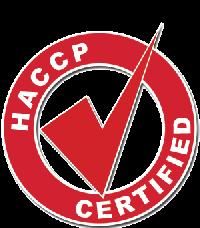
Haccp Certifications
Get Price Quote
We are providing haccp - hazard analysis of critical control points is a management system for food safety. It is based on real inspection standard with many production and environmental requirements. It is also has requirements for a quality management system and food safety, including an haccp. Hazard analysis and critical control point (haccp) is a process control system designed to identify and prevent microbial and other hazards in food production. It includes steps designed to prevent problems before they occur and to correct deviations as soon as they are detected. We are dedicatedly engaged in offering services of haccp certification. The offered certification is an internationally accepted technique for preventing microbiological, chemical and physical contamination along the food supply chain. This technique does this by identifying the risks, establishing critical control points and setting critical limits. Also it ensures that control measures are validated, verified and monitored before implementation.
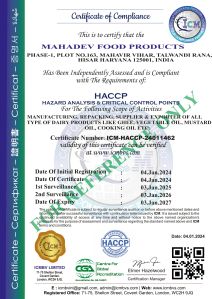
Haccp Certification Service
Get Price Quote
HACCPHazard Analysis Critical Control Points (HACCP) is a system which provides the framework for monitoring the total food system, from harvesting to consumption, to reduce the risk of foodborne illness. The system is designed to identify and control potential problems before they occur. In its Model Food Code, the Food and Drug Administration has recommended the HACCP system “because it is a system of preventive controls that is the most effective and efficient way to assure that food products are safe ” (1999 FDA Model Food Code) . The application of HACCP is based on technical and scientific principles that assure safe food.haccp terminology Critical Control Point (CCP) – A procedure/practice (control) in food handling/preparation that will reduce, eliminate or prevent hazards. It is a “kill” step that kills microorganisms or a control step that prevents or slows their growth. Hazard – Unacceptable contamination, microbial growth, persistence of toxins or survival of microorganisms that are of a concern to food safety. Monitoring – Checking to determine if the criteria established by the critical control point(s) (CCP) have been achieved. Risk – Probability that a condition(s) will lead to a hazard.Severity – Seriousness of the consequences of the results of a hazard. ractical haccp principles Practical HACCP principles adapt the seven HACCP steps into a form that is easily applied in a non commercial setting. The seven steps deal with the issues of thorough cooking and cooling which are the major causes of foodborne illness. In order for this simplified, focused application of HACCP principles to be effective in reducing the risk of foodborne illness, Standard Operating Procedures (SOP’s) of personal hygiene, basic sanitation and food storage must be developed and adhered to. The SOP’s should be developed, taking into consideration the types of foods that will be prepared during the foods labs, the number of students involved in the food preparation activity and the type of equipment to be used. The SOP’s can be listed in the form of a checklist, which can be checked off as each item is accomplished.formal haccp seven steps 1. Conduct a hazardous analysis.The purpose of a hazardous analysis is to develop a list of hazards which are likely to cause injury or illness if they are not controlled. Points to be considered in this analysis can include: skill level of employees; transport of food; serving elderly, sick, very young children, immune-compromised; volume cooling; thawing of potentially hazardous foods; high degree of food handling and contact; adequacy of preparation and holding equipment available; storage, and method of preparation. The next step is to determine if the factors may influence the likely occurrence and severity of the hazard being controlled. Finally, the hazards associated with each step in the flow of food should be listed along with the measures necessary to control the hazard. At this step in preparation can food become contaminated and/or can contamination increase? Can this hazard be prevented through corrective action(s)? Can this hazard be prevented, eliminated or reduced by steps taken later in the preparation process? Can you monitor the CCP? How will you measure the CCP? Can you document the CC
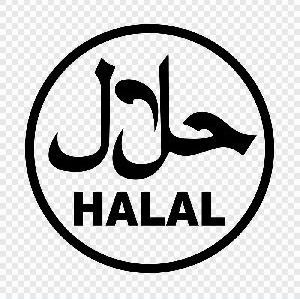
Halal Certification
Get Price Quote
Based on the nature of the business, the type of Halal certification varies. Most frequently, Halal certification is obtained for places like restaurants, hotels, slaughtering houses, packaging and labeling materials to ensure they are suitable to be visited / used by Muslim consumers. However, Halal certification is not limited to only food produce. Non-alcohol beverage, raw materials needed in food processing, pharmaceutical and health care products, traditional herbal products, cosmetics and personal care products, cleaning products and daily consumable products can also obtain Halal Certificate.

Halal Certification Service
Get Price Quote
Cater to diverse markets with our Halal Certification service. We streamline the certification process, guiding you through documentation, facility inspections, and compliance with Islamic dietary laws. Our expert team ensures a seamless and accurate certification process, allowing your products to be recognized as Halal-compliant. Whether you're in the food, pharmaceutical, or cosmetic industry, our service is tailored to meet specific Halal certification requirements. Gain access to global Halal markets, build consumer trust, and enhance your marketability with our reliable and efficient Halal Certification service. Choose us to navigate the complexities of certification, ensuring your products adhere to the highest Halal standards.

Halal Consultancy and Certification Services
Get Price Quote
What is Halal Certification? Halal Certification is a recognition that the products are permissible under Islamic law. These products are thus edible, drinkable or usable by Muslims.The Halal certificate is a document that guarantees that products and services aimed at the Muslim population meet the requirements of Islamic law and therefore are suitable for consumption in both Muslim-majority countries and in Western countries where there are significant population group who practice Islam (France, Germany, United Kingdom, Spain). Halal certification is a process which ensures the features and quality of the products according to the rules established by the Islamic Council that allow the use of the mark Halal. It is mainly applied to meat products and other food products such as milk, canned food and additives. Specifically, for meat products Halal certifies that the animals were slaughtered in a single cut, thoroughly bled, and their meat have not been in contact with animals slaughtered otherwise and, especially, with pork. Products that are Halal certified are often marked with a Halal symbol, or simply the letter M.